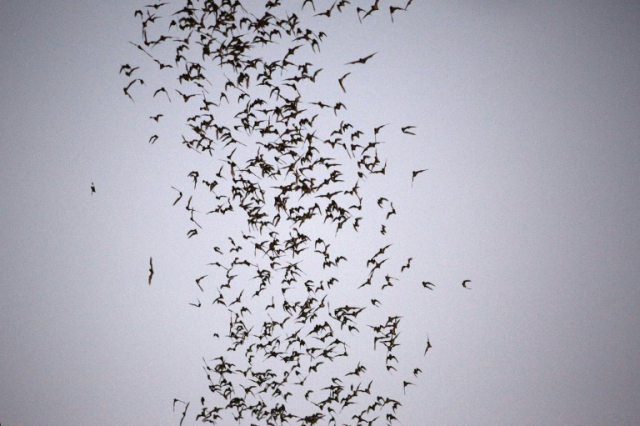Bats to blame for pig-killer virus in China – study

The findings that a pig virus in China came from bats, based on genetic analysis, underlined the urgency of tracking viruses in animal “reservoirs” such as bats, researchers wrote in the science journal Nature. Image: Ye Aung Thu/AFP
A mystery germ that killed nearly 25,000 piglets in China in 2016/17, came from horseshoe bats, the same species that gave us the deadly human SARS virus, researchers said Wednesday.
The finding, based on genetic analysis, underlined the urgency of tracking viruses in animal “reservoirs” such as bats, they wrote in the science journal Nature.
“This study highlights the importance of identifying coronavirus diversity and distribution in bats to mitigate future outbreaks that could threaten livestock, public health, and economic growth,” said the paper.
The researchers used DNA to pinpoint the cause of a mysterious disease that caused diarrhea, vomiting, and death in piglets in China’s Guangdong Province.
They identified a never-before-seen coronavirus which they dubbed Swine Acute Diarrhea Syndrome (SADS). It does not appear to sicken humans.
The virus, the team found, came from horseshoe bats in a region near the birthplace of SARS — Severe Acute Respiratory Syndrome — some 15 years ago.
Highly infectious and deadly, the SARS virus killed nearly 800, almost one in ten.
Many new human infectious diseases — including SARS and Ebola — have an animal origin.
The study findings should serve as “a warning of viral interspecies transmission between wildlife and domestic animals,” study co-author Zhengli Shi told AFP.
It also underlined “the importance of long-term surveillance for viruses in their natural reservoirs.”
This does not mean we should go out and kill all horseshoe bats, added Shi.
“Wildlife is important in ecosystems,” she told AFP. “It’s normal that wildlife carry many viruses, bacteria, fungi, etc. As long as human society keeps away from wildlife, there is (a) very low chance of interspecies transmission.” AB
RELATED STORIES:
Newly discovered body organ may explain how cancer spreads
Test reveals why female lion in Oklahoma zoo sprouted a mane
Top bottled water brands contaminated with plastic particles
For more news about the novel coronavirus click here.
What you need to know about Coronavirus.
For more information on COVID-19, call the DOH Hotline: (02) 86517800 local 1149/1150.
The Inquirer Foundation supports our healthcare frontliners and is still accepting cash donations to be deposited at Banco de Oro (BDO) current account #007960018860 or donate through PayMaya using this link.